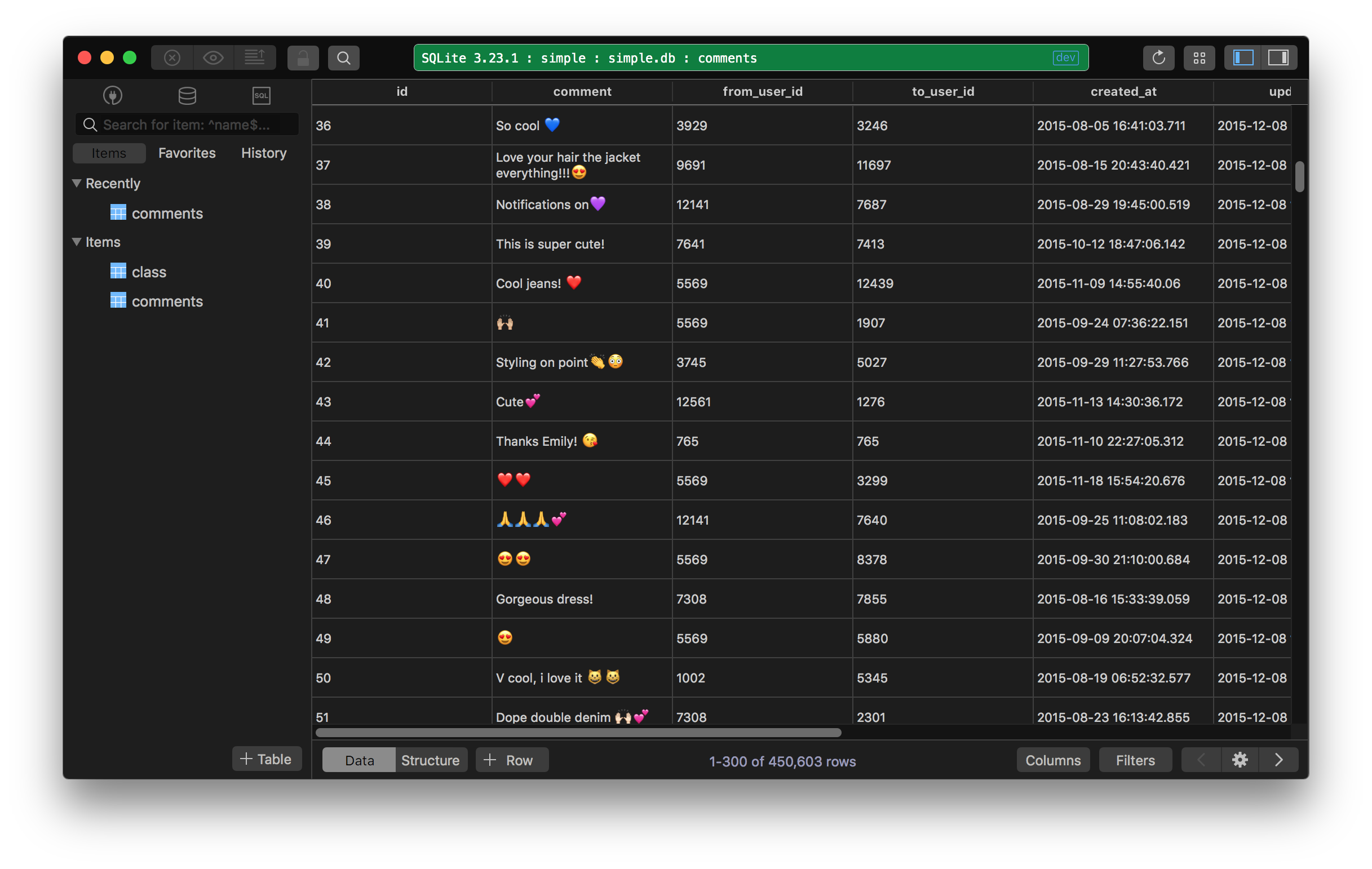SQLite vs Microsoft Access - A quick comparison
What is it?
-
SQLite is a self-contained, high-reliability, embedded, full-featured, public-domain, SQL database engine. SQLite is one of the most used database engines in the world.
-
Microsoft Access (often called Access) is a database management system from Microsoft that combines the backend relational Microsoft Jet Database Engine with a graphical user interface frontend for data manipulation and queries.
Developers
- SQLite was built by Dwayne Richard Hipp and released in 2000.
- Access is built and marketed by Microsoft as a member of the Microsoft Office suite of applications, included in the Professional and higher editions or sold separately.
Pricing
- SQLite is free to use.
- Access is a commercial product.
Server operating systems:
- SQLite is server-less. You can store and get it run on any operating systems.
- Microsoft Access can only run on Windows.
Supported Languages:
- Access supports several programming languages:
- C
- C#
- C++
- Delphi
- Java (JDBC-ODBC)
- VBA
- Visual Basic.NET
- While SQLite works with almost every programming language you can think of:
- Actionscript
- Ada
- Basic
- C
- C#
- C++
- D
- Delphi
- Forth
- Fortran
- Haskell
- Java
- JavaScript
- Lisp
- Lua
- MatLab
- Objective-C
- OCaml
- Perl
- PHP
- PL/SQL
- Python
- R
- Ruby
- Scala
- Scheme
- Smalltalk
- Tcl
Stored Procedure support
- Access supports stored procedure, while SQLite doesn’t have that concept.
Pros
Access:
- It has a built-in visual frontend tool. You don’t need to find another tool for it. You can query and manipulate large amounts of data without knowing SQL.
- It’s well integrated with other MS Office products, Excel, Visual Basic, and SQL Server, so migration within the Microsoft world is built-in.
- .NET-friendly – Access is a go-to choice for users who plan to develop software using .NET
- Multi-user support. Even though it’s not really a good feature but it does support.
- Widely popular — Microsoft Access is the most popular desktop database system in the world.
SQLite:
- It’s free
- It’s lightweight and fast.
- It is truly a stable cross-platform database.
- Zero-configuration needed
Cons
Access:
- Not free. It’s pay to play.
- It’s not multi-platform.
- Limited customization. Microsoft has a lot of prebuilt Access templates you can download. But you can’t change anything in the underlying structure, which makes it hard to tweak for your application.
- Microsoft Access does not have full parity with a traditional SQL Database so many functions are unavailable and any existing SQL must typically be rewritten to use in Access.
- It has low performance when dealing with large databases.
SQLite:
- Lack of built-in data encryption.
- SQLite is a single-user DBMS. If a multi-user system is required, then an alternative is required.
- It’s not designed to handle really large scale database.
Final thought
Both SQLite and Access are good for small-scale datasets but if you need something quick for desktop and use Windows, Access might be a good option. If you build a mobile application, embedded devices and the internet of things, or use other OS, go for SQLite.
Need a good GUI Tool for SQLite? Try TablePlus. It provides a modern, native GUI client for you to access, query, edit, and save your SQLite databases in a fast and secure way.
Download TablePlus for Mac. It’s free anyway.
Not on Mac? Download TablePlus for Windows.
